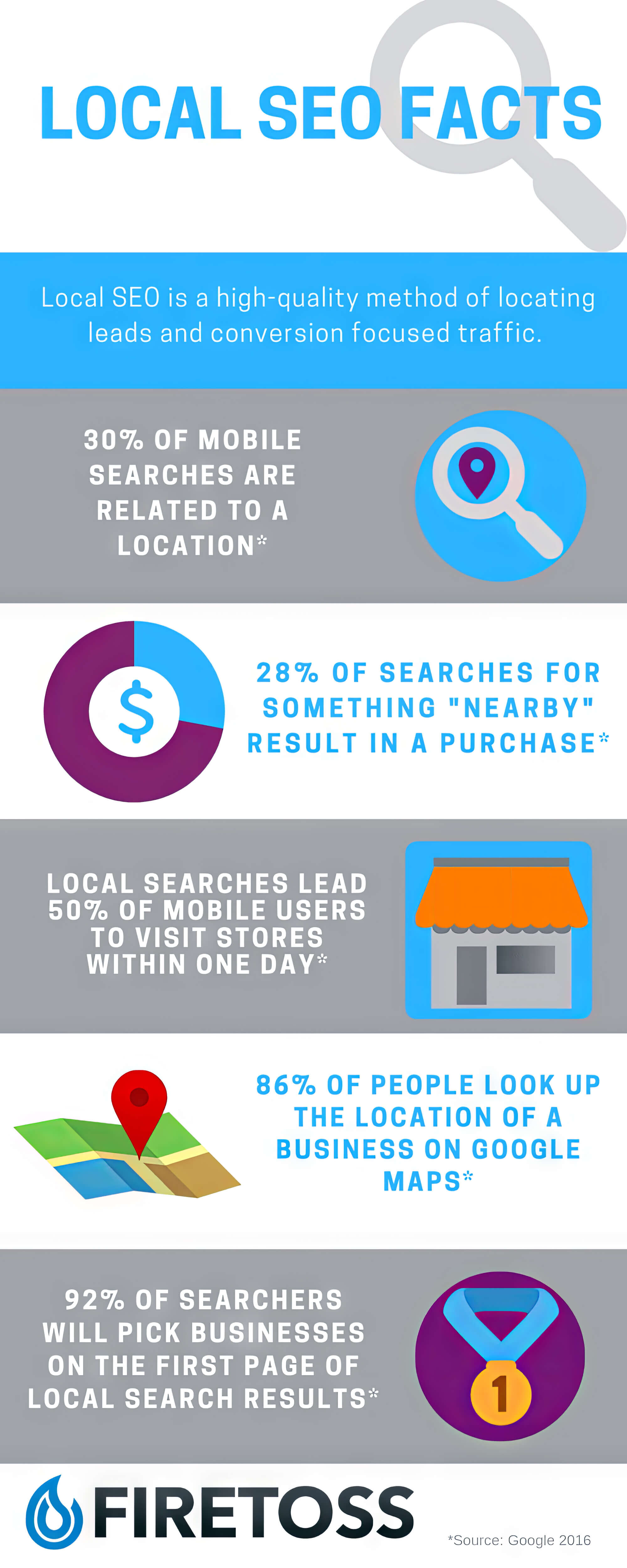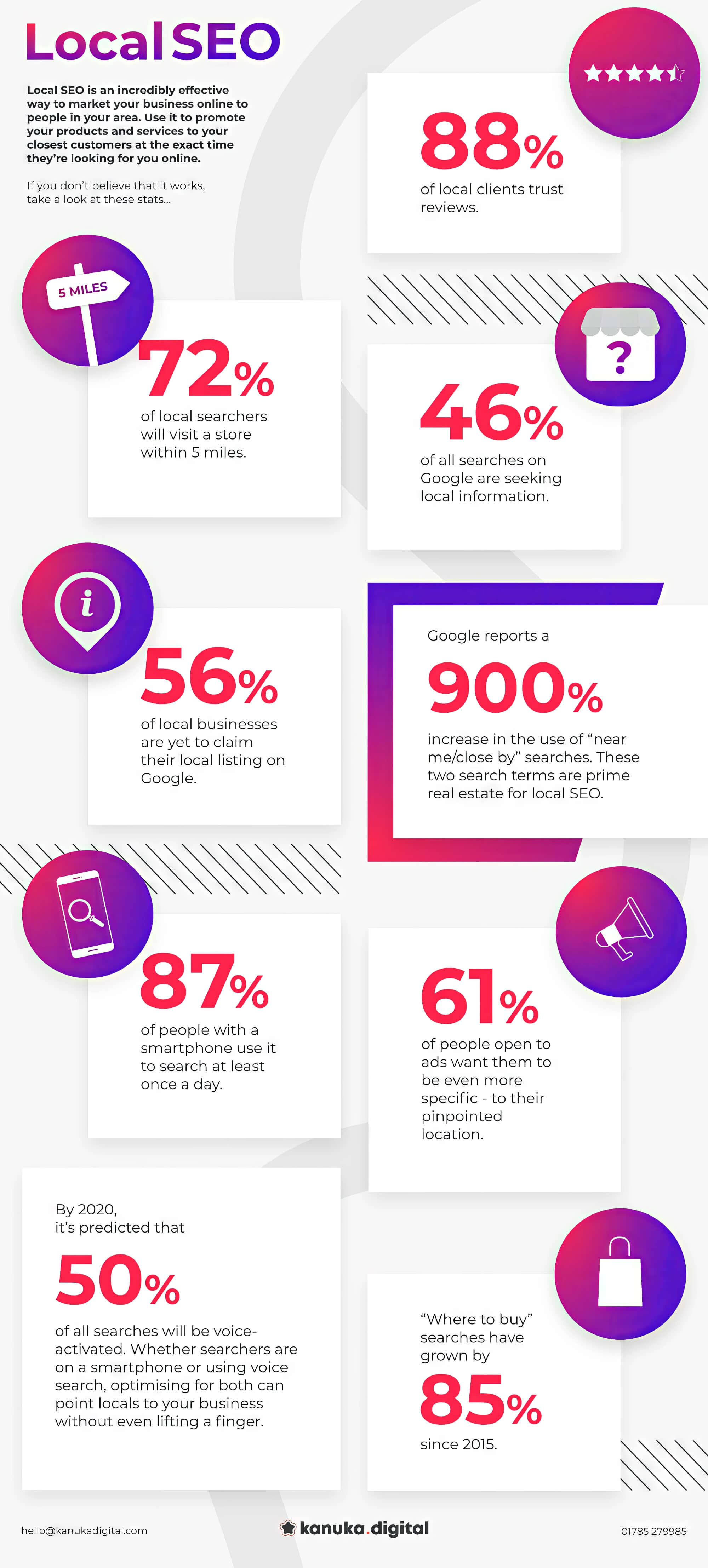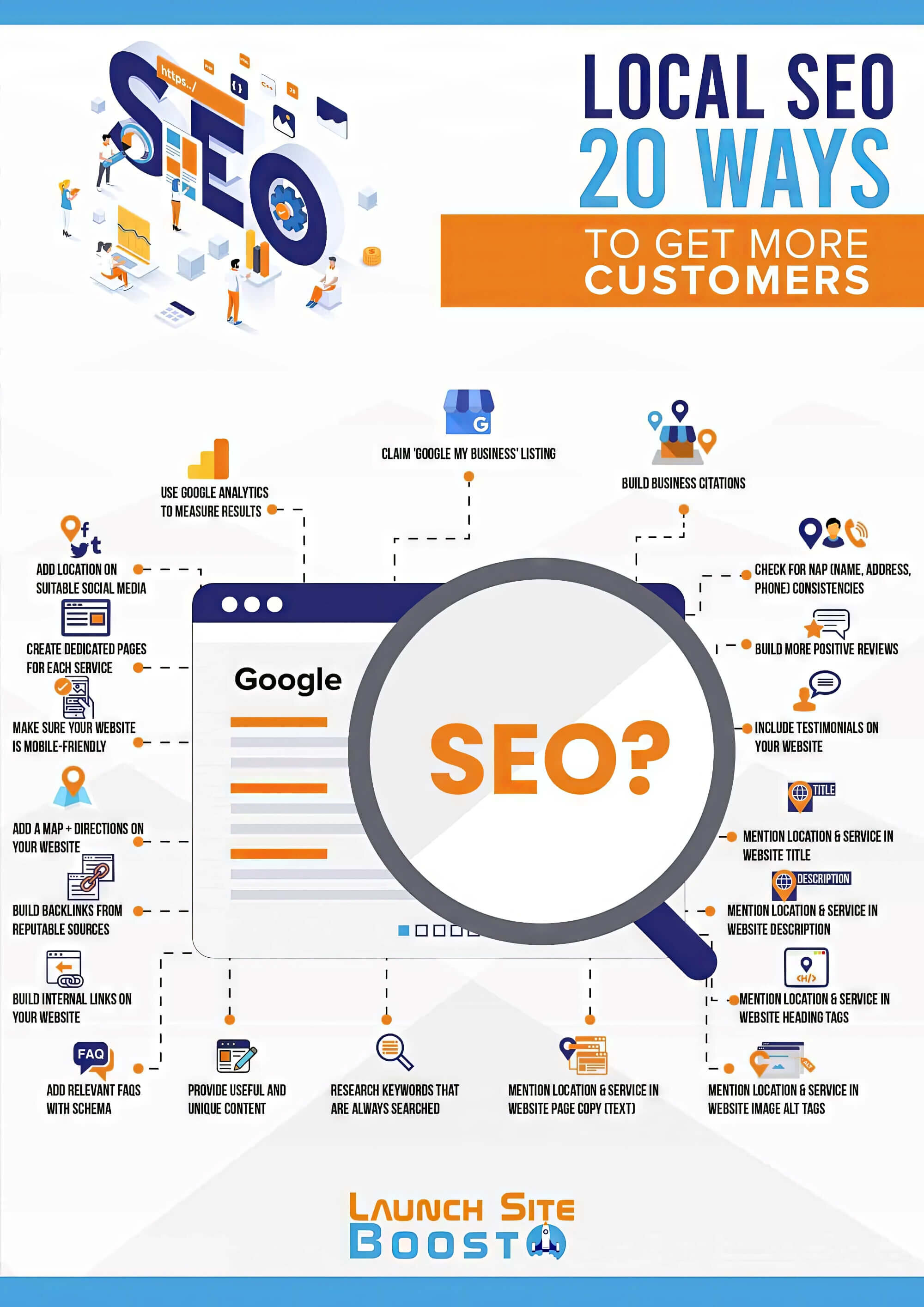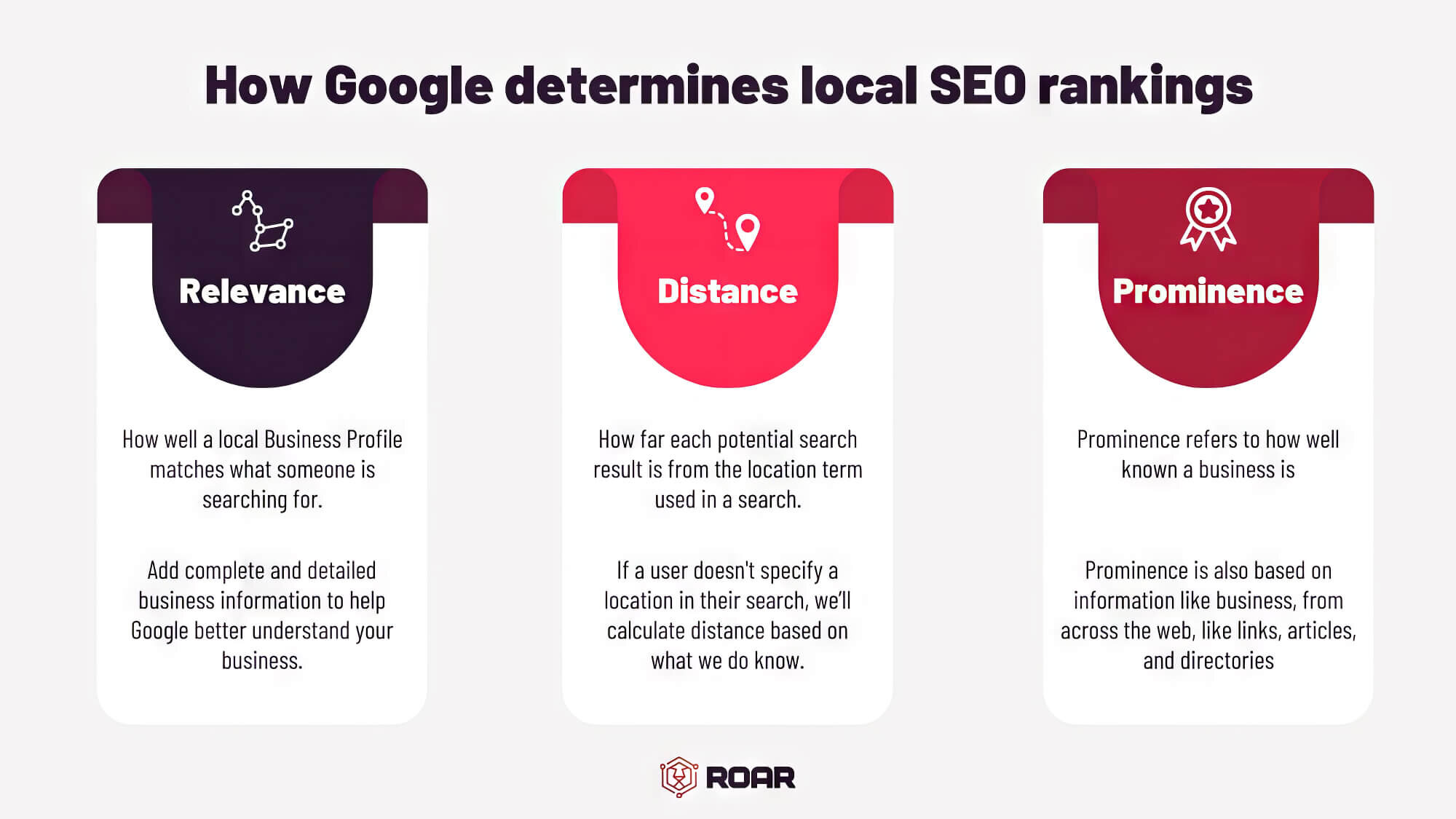Summary / TL;DR
Local SEO helps service-based businesses increase visibility in local search results, enabling them to attract nearby customers without relying on paid advertising. Successful strategies include keyword research targeting local services, optimising Google Business Profiles with accurate contact details, and ensuring responsive, user-friendly website design. Additional tactics involve maintaining current citations, leveraging social media, building inbound and internal links, and ensuring the site is mobile-friendly. Google reports show 76% of local searches lead to a same-day visit, and 28% of those result in a purchase, highlighting local SEO’s impact. Regular audits and community engagement can further improve results.
Do you want your business to reach the maximum number of people in the shortest time? With digital marketing practices, you can do just that.
SEO in digital marketing is highly effective, and it’s not just because it’s easy to implement. Its dynamic nature makes it one of the most lucrative tactics for local service-based businesses. Implementing SEO can be a real game-changer for reaching potential customers right in your area.

However, only some local business owners may be well-versed in modern digital marketing systems. That can make implementing such a system fairly challenging. But there’s no need to worry, for this guide has discussed everything you need to know to get started.
So, if you are a local business owner, keep reading to know more!
What Is Local SEO For Service-Based Businesses?
To understand what local SEO means, you need to get some idea about SEO in general. Simply put, SEO is improving a website to increase the volume of incoming traffic from search engine results pages (SERPs).
By “improving a website,” we primarily refer to enhancing the quality of the content on the site. It also involves refining the visual and navigational aspects of the site since both help engage and convert users.
When a user searches for information on the Internet, search engines display all the relevant results in SERPs. If your site ranks higher in these search results, users will naturally click on your links more, improving traffic.
Nearly every search engine today follows a similar operation mode, making SEO a crucial strategy in the modern business environment.

The SEO strategy differs from paid digital marketing strategies like pay-per-click or PPC. Here, you do not need to spend extra money on ads, meaning your website’s traffic is entirely organic.
Since you’ve got a fundamental idea of what SEO means, let’s move on to local SEO. Local SEO is a practice where you improve the online presence of your business to improve visibility in local search results.
A strong local SEO strategy means your business page is more likely to pop up near the top when folks are searching for local info related to your services. It’s all about getting noticed in your community.
Why Is Local SEO Important For Service-Based Businesses?
Local SEO is the best method for improving the reach of small local businesses. These businesses typically lack the funds and resources required to implement larger or more comprehensive marketing campaigns. As such, their best bet is to improve their local search visibility to attract customers.
In that context, local searches are some of the most common in search engine activities today. According to a report, 46% of the search queries in Google are from users seeking local information, while 97% of the queries are made to seek information about local businesses.

Similarly, according to Google’s own statistics, 76% of people who make local searches visit the business within the same day. Around 28% of those visits are converted to a purchase.
Thus, if you own a local service-based business, you can understand the implications of the above statistics. If you use it properly, local SEO can help your business’s rapid growth and development.
How Does Local SEO Work For Service-Based Businesses?
Local SEO works on the same basic principles as regular SEO. Both aim to show the most relevant results on search engine pages, but local SEO focuses more on tailoring those results for your nearby audience rather than the broader public.
For instance, if you do a local search in Google, you will notice that the results are displayed in two separate sections.
The first section consists of Google Maps results (also known as the map pack), while the following section consists of regular search results related to your query.

The map results always occupy the top position in local rankings to improve user convenience. They show the relevant business listings and the necessary contact details, such as names, addresses and phone numbers (often shortened to NAP).
Thanks to that, the searcher can quickly get in touch with the local business or visit the physical location of the business.
Subsequently, the regular search results below the map pack help drive organic traffic to your website. For an online business, these results are crucial since it typically does not have an offline brick-and-mortar establishment.
How Do Service-Based Businesses Optimise For Local SEO?
Local SEO’s dynamic nature means it can be applied to various service segments. Essentially, service-based businesses across the board can leverage local SEO to boost their visibility and attract more clients.
These businesses include:
- Restaurants
- Plumbers
- Electricians
- Lawyers
- Local contractors
- Private clinics
- Local consultants
- and many more.
However, with the sheer volume of local businesses today, you need to implement an SEO strategy that stands out from the crowd. Otherwise, your business will need more visibility to grow. That is why optimising your local SEO is important since it helps you to do just that. As a result, it will give your business a significant edge over your competition.
Keeping that in mind, we have discussed some tried-and-tested strategies for local SEO here. So, if you want to improve local SEO for service-based businesses, read on.
1. Local Keyword Research
Keyword research is, without a doubt, the most effective SEO strategy, both for local businesses and regular websites. It improves your content’s quality and relevance, ultimately improving its rank on SERPs.
In the case of a service-based business, you will need to develop your content based on relevant service-based keywords. This is because local searchers usually search by using these keywords.
If the content on your website has a sufficient number of these keywords, the search engine algorithms will find it relevant to the user’s queries. Ultimately, it will be placed high up in the local search results.
For example, if you have a business providing plumbing services, you must use keywords relevant to your local customers.
These can include words (or phrases) like “plumbing,” “pipe repair,” “tank installation,” and “drain cleaning,” to name a few.
You can also include the location and these keywords to improve local search rankings. For instance, if you own a local law firm in Brisbane, your keywords can look like “legal advisors in Brisbane,” “local Brisbane lawyers,” and so on.
However, if you are having trouble finding relevant keywords, you can use some helpful local SEO tools like Google’s Keyword Planner or SEMrush. With it, you can get an idea about the best possible keywords for your website. If you correctly incorporate those keywords into your site’s content, you can improve local SEO success.
2. Optimise And Update Your Google Business Profile
If you want your business to rank well on local Google search results, you must optimise your Google Business Profile. Formerly known as Google My Business, the Business Profile is a local SEO tool that allows you to provide all the necessary business details to Google.
We would recommend that you provide all the information about your business in the Business Profile. This includes things like the business category, NAPs, email addresses, websites, and other details.
If you provide them accurately, Google will consider your business authentic, eventually enhancing your ranking. Furthermore, a Business Profile is mandatory if you want your business listing to appear on the map pack.

3. Check And Monitor Links
Monitoring and verifying the links on your website is one of the most crucial local SEO strategies for service-based businesses. Links often help users navigate between different pages on your site. Besides, they help improve the relevance of your content, which is a key factor for local SEO success.
On that note, you need to consider two types of links: internal links and inbound links. Internal links lead from one web page to another on the same website, while inbound links lead from one website to another.
For instance, let’s assume you created an article about lighting systems on your electrical services website. In that scenario, you may use a link to lead the reader to the “contact us” page of the site. That would be a great example of an internal link.
Now, let’s assume that you have a website for your gym business. So, if a third-party fitness blogger writes about your gym and provides a link to your site, that would be a classic example of inbound linking.
Both of these links improve the authority and relevance of your site for local SEO purposes. That, in turn, improves the ranking of your business in local searches. Therefore, you must check and monitor your site’s internal and inbound links.
If there are any dead links, you must remove them from the site. Similarly, if a link is broken, you must fix it to make your site easily navigable.
4. Develop Your Website
If you want to convert visitors to your website into paying customers, you must take the necessary steps. One of the best ways to do that is to improve your website.
Let’s face it, no one enjoys a slow or poorly designed website. If visitors spend too much time staring at loading screens or struggling with navigation, they’ll likely lose interest pretty quickly. Ensuring a smooth, user-friendly experience keeps people engaged and encourages them to stick around.
That being the case, you need to pay close attention to the design of your website. You need to ensure that the pages load fast for minimal waiting time. Likewise, you should use an engaging layout that can keep the users interested.
On the other hand, you should avoid using too many features and plug-ins on your site since that will eat up system resources and slow down the user’s machine. Make sure to use only the necessary features and items to prevent your website from feeling too empty or boring. That way, you can convert more users, improving your local SEO success rate.
How Can Service-Based Businesses Improve Their Local Search Visibility?
The points discussed in the previous section are essential for developing a sound SEO strategy for your local business. However, these are the fundamental aspects implemented across most service-based business websites. This section will discuss some helpful local SEO tips for service-based businesses.
1. Use Social Media Platforms
Getting involved on social media can really boost your local search visibility. Setting up business pages on platforms like Facebook and Twitter, or others that suit your audience, helps you connect and engage more effectively.
Not only that, but you will also need to make frequent posts on these pages to engage your followers actively. These posts can be in the form of links that lead to articles on your website. Or they could be in the form of videos, images or text. You can develop a positive brand image, maximising your reach.
2. Engage With The Local Community
Engaging with the local community is another effective tip for improving your local SEO success rate. Depending on your capabilities, you can accomplish this in several ways.
If you have the necessary influence within your locality or region, you can participate in social events or other relevant PR campaigns. For instance, if you own a nursing service business, you can organise a charity to raise awareness about a particular health issue.
But if you don’t want to organise the event on your own, you can become a sponsor in a third-party event. That way, you will be able to generate public interest, which will subsequently drive local search traffic to your website. Besides, you can provide a valuable service to the community, which is an added advantage.
3. Get Involved With Guest Writing
Guest writing is a content marketing practice that involves creating posts and articles for third-party sites and blogs. Thus, you can use this tactic to drive inbound traffic to your site.
You can collaborate with established institutions and organisations to create these guest posts. The websites these institutions operate will naturally have a higher domain authority due to their reputation. So, including external links on these guest posts will help generate user traffic for your website.

4. Keep Your Citations Up-To-Date
When a third-party aggregator mentions the details of your business on their site, it is known as a citation. These third-party sites often act as online directories that contain helpful contact information for different businesses and individuals, similar to a telephone book. In most cases, search engines include the information provided in these directories on the search results pages.
That is why it is always a good idea to update your website citations on a regular basis. Make sure to verify that all the details provided in these directories are accurate, or else it might affect the authenticity of your business. As a result, that will decrease the effectiveness of your local SEO campaign.
5. Optimise The Headers, URLs And Meta Descriptions Of Your Pages
Whenever you create new content on your website, you must ensure that it is optimised well enough to appear on SERPs. You will need to use the correct keywords in your content. In addition, you must pay attention to the headers, meta descriptions, URLs, and other technical aspects of the page.
You will need to use geographically relevant and high-volume keywords in these places, which will ultimately help with indexing your pages. Consequently, your articles and content will rank higher on the search engine result pages.
6. Make Your Website Mobile Friendly
It is no secret that the vast majority of people nowadays use smartphones and tablets. Because of their smaller resolution and screen space, websites are often displayed differently on these devices.
Therefore, to improve your local SEO efficiency, you must optimise your site so users can navigate easily on these mobile devices. You need to ensure that the page orientations are correct and that the text, images and videos are clearly visible on the screen.
7. Perform A Local SEO Audit For Service-Based Businesses
Just because everything on your website is up and running doesn’t mean your work is over. Local SEO is a long and ongoing process that needs to be monitored regularly. If you don’t, you might fall behind, reducing the chances of growth.
On that account, performing a local SEO audit is best. This will give you a clear idea about your website’s current status and help you develop future goals.
You can perform different types of local SEO audits, such as on-page SEO audits, citation audits, competitor analysis, Google My Business audits, and so on. For the best results, you should perform these audits periodically.
What Are The Benefits Of Local SEO For Service-Based Businesses?
Effective local SEO for service-based businesses has several advantages, such as:
- Improving organic traffic and conversion rates
- Helping with continuous, long-term business growth
- Improving the cost-effectiveness of marketing strategies.
- Enhancing brand visibility in a geographical area
- Building a community of loyal consumers
- Gaining a competitive advantage over rival local businesses
Thanks to the above benefits, you can generate considerable revenues from your local service-based business. In turn, this will allow you to expand the scope of your business further.
Local SEO for Service-Based Businesses
Related Local SEO Guides
Master local SEO:
Related Local SEO Guides
Master local SEO:
Related Local SEO Guides
Master local SEO:
This detailed guide about local SEO services for service-based businesses concludes. Using the information we have provided here can quickly improve your business’s growth prospects.
Of course, not everyone is as knowledgeable in digital marketing concepts as these. Besides, we entirely understand that if you can only invest some of your time and effort into this, it can hamper other areas of your business.
But there’s no need to worry; we’ve got your back. Here at sitecentre®, we offer affordable local SEO for service-based businesses. Just tell us the specifics of your business, and we will conveniently take care of the rest. So, contact us if you want your local service-based business to succeed!




